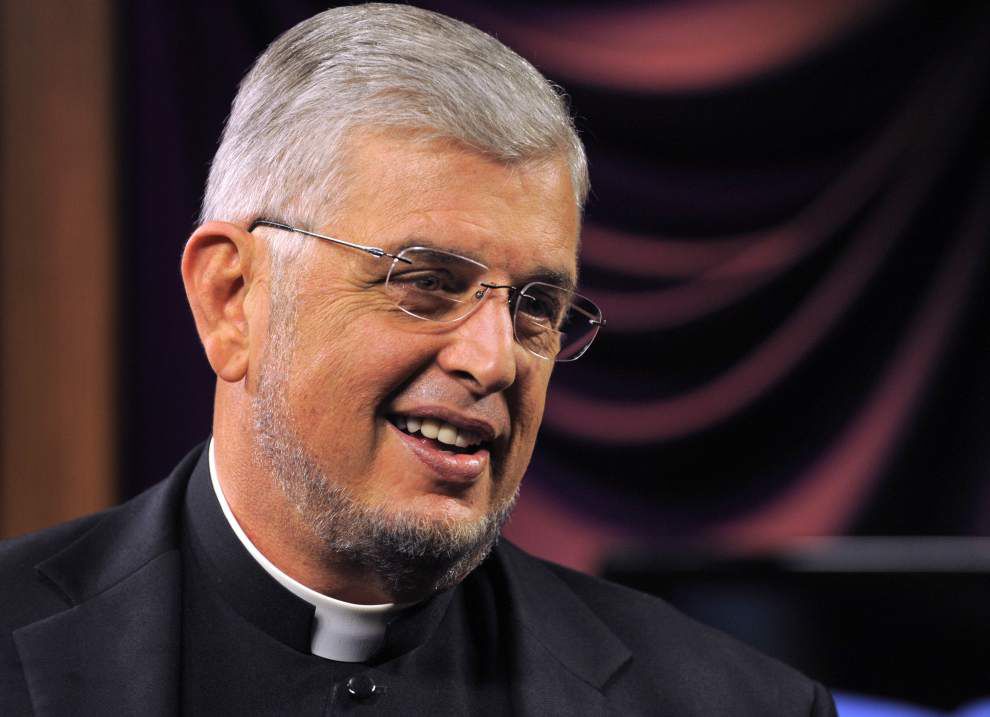Priests Can't Legally Be Forced to Reveal What's Heard in Confessional, Louisiana Supreme Court Rules
By Joe Gyan
A priest has no duty to report confidential information heard during a sacramental confession, the Louisiana Supreme Court ruled Friday in a bid to clear up what it called the "widespread confusion" caused by its decision two years ago in a long-running case involving the Roman Catholic Diocese of Baton Rouge. The diocese had warned after the 2014 ruling that the sanctity of the confessional was under attack by the ruling the church said might force a priest to reveal in court what was privately told to him. The case involves a young woman who claims she told a Baton Rouge-area Catholic priest that a longtime church parishioner was sexually abusing her when she was 14 but the priest did nothing to stop or report the alleged abuse. In a 2014 ruling in the case that resuscitated Rebecca Mayeux's lawsuit against the Baton Rouge Diocese and the Rev. Jeff Bayhi, the state Supreme Court said a dispute remained "concerning whether the communications between the child and the priest were confessions per se and whether the priest obtained knowledge outside the confessional that would trigger his duty to report" sexual abuse allegations. The Supreme Court on Friday conceded that it never "conclusively determined" whether a priest, in administering sacramental confession, is a mandatory reporter of child abuse under provisions of the Louisiana Children's Code. Such a determination would make priests subject to the mandatory duty to report under the code. "Any communication made to a priest privately in the sacrament of confession for the purpose of confession, repentance, and absolution is a confidential communication ... and the priest is exempt from mandatory reporter status ..." the high court decreed Friday. The court added that a review of the legislative history "provides further proof the Legislature never intended to impose such mandatory reporter status on priests when administering the sacrament of confession ..." The Baton Rouge Diocese issued a statement late Friday saying it was very pleased with "the Louisiana Supreme Court's recent opinion, which affirms the sanctity of the Sacrament of Reconciliation." The statement continued: "The narrow exception to the mandatory reporting laws which the legislature has provided, and which the Supreme Court has now recognized, protects religious freedom, while leaving in place our state's rigorous reporting requirements which serve to protect our children from harm." Earlier this year, state District Judge Mike Caldwell, who is presiding over the Mayeux case in 19th Judicial District Court, struck down a provision of the Louisiana Children's Code -- Article 609 -- that requires clergy to report allegations of wrongdoing, even if learned in the privacy of the confessional. Article 609 requires any statutorily defined "mandatory reporter" of child abuse "who has cause to believe that a child's physical or mental health or welfare is endangered as a result of abuse" to report the suspected abuse irrespective of "any claim of privilege." The Supreme Court on Friday vacated the judge's ruling as premature, saying there's no need to declare the article unconstitutional "because a priest under these circumstances is not a mandatory reporter; he is excluded because he does not qualify as a mandatory reporter." "We are pleased on the overturning of the ruling of unconstitutionality but are disappointed in the overall result," said Brian Abels, one of Mayeux's attorneys. Mayeux's alleged abuser, George Charlet Jr., died in 2009 at the age of 65. Mayeux claims she told Bayhi, her pastor at Our Lady of Assumption in Clinton, in 2008 of the alleged sexual abuse. Bayhi has testified previously in the case that he can neither disclose what happens in any confession nor confirm that a confession even took place. To do so, he said, would bring automatic excommunication from the church. Caldwell and a state appeals court have said Mayeux can tell a jury what she allegedly told Bayhi in a confession.
|
.
Any original material on these pages is copyright © BishopAccountability.org 2004. Reproduce freely with attribution.
